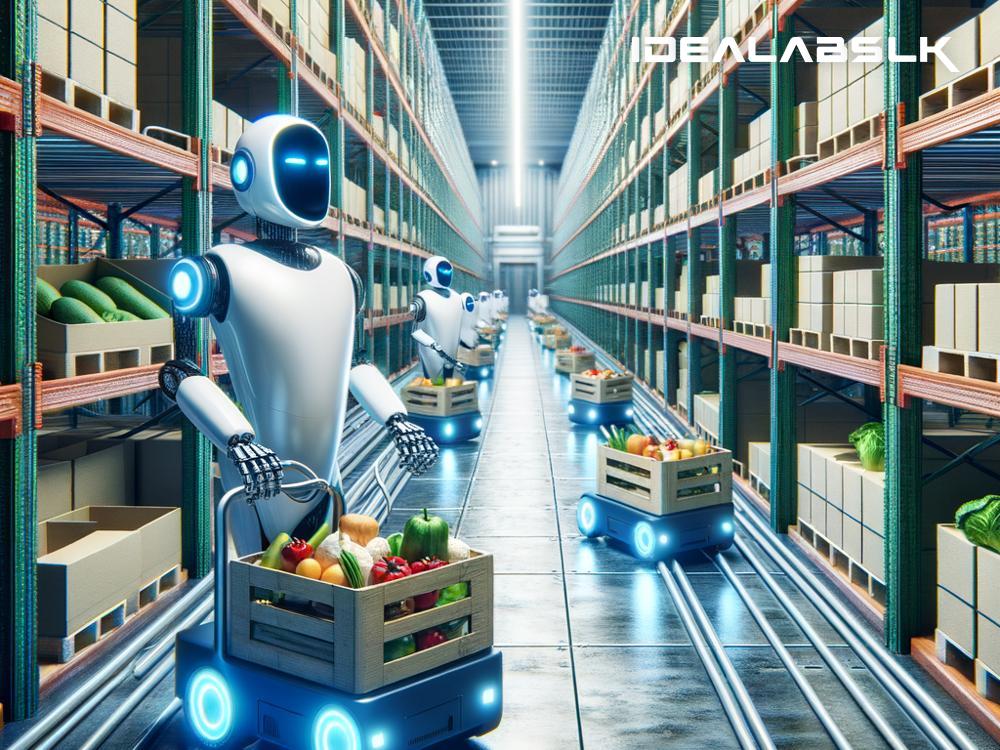Revolutionizing the Food Sector with AI-Powered Smart Storage Systems
In today's fast-paced world, technology has become the backbone of many industries, constantly introducing innovations aimed at improving efficiency, reducing waste, and maximizing profits. One such innovation that's making waves in the food sector is the integration of Artificial Intelligence (AI) into smart storage systems. This groundbreaking approach is not just transforming how food is stored but is also ensuring its longevity, quality, and safety. Let's delve into how AI-powered smart storage systems are revolutionarily changing the food sector, making operations smarter, smoother, and more sustainable.
The Necessity of Smart Storage in the Food Sector
The food industry, from farms to restaurants, faces the ongoing challenge of managing perishable items. The traditional methods of storage have limitations, often leading to substantial food waste due to spoilage. Moreover, the global demand for food is continuously increasing, pushing the industry to find innovative solutions to meet these needs without compromising on food safety and quality. This is where AI in smart storage systems comes into play.
How AI is Revolutionizing Food Storage
AI-powered smart storage systems are a game-changer for several reasons. Let's explore how:
1. Intelligent Monitoring and Control
These smart storage units use sensors and AI algorithms to constantly monitor the conditions inside the storage space, such as temperature, humidity, and the gas composition. By having real-time data, the system can automatically adjust these parameters to ensure optimal conditions for different types of food. This not only helps in extending the shelf life of perishable items but also maintains their freshness and nutritional value.
2. Predictive Analytics for Demand Forecasting
One of the most impressive features of AI in smart storage is its ability to predict future demand using historical data and trends. By understanding which products are likely to be in higher demand at certain times, businesses can better plan their inventory, ensuring they have the right amount of stock at the right time. This reduces the chances of overstocking and, subsequently, food waste.
3. Enhanced Traceability
Food safety is paramount in the food sector. AI-enabled smart storage systems offer advanced traceability features that make it easier to track the journey of food items from the farm to the storage facility and, eventually, to the consumers. In the event of a food safety issue, this technology can quickly identify and isolate affected products, significantly minimizing health risks and financial losses.
4. Energy Efficiency
Another significant advantage of using AI for smart storage is improved energy efficiency. Traditional storage facilities can consume a lot of energy to maintain the right conditions for food preservation. However, AI-powered systems optimize energy use by dynamically adjusting settings based on the actual storage needs, which can lead to considerable energy savings and reduced operational costs.
Challenges and Future Potential
While the benefits of AI in smart storage systems are clear, there are challenges to its widespread adoption. High initial investment costs and the need for technical expertise to manage these systems are significant barriers for many businesses. However, as technology advances and becomes more accessible, it's expected that more food businesses will embrace AI-powered smart storage solutions.
The future of AI in the food sector looks promising. With continual advancements in AI and machine learning algorithms, we could see even more sophisticated smart storage systems that offer enhanced functionalities, such as automatic restocking based on predictive analytics or even robotic systems for handling and sorting products within the storage facility.
Concluding Thoughts
The integration of AI into smart storage systems is undoubtedly revolutionizing the food sector. By enabling smarter storage solutions that optimize inventory management, enhance food safety, and improve energy efficiency, AI is helping businesses meet the growing food demand in a sustainable and profitable way. As technology continues to evolve, the potential for further innovations in food storage seems limitless, promising a future where food waste is significantly reduced and global food supply chains are more resilient and efficient.

